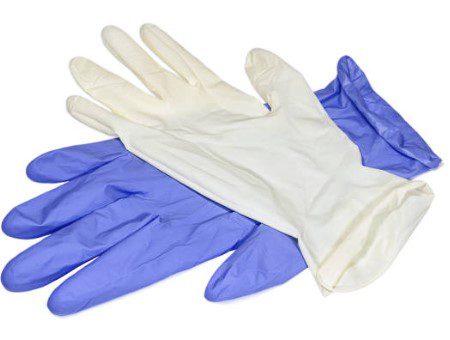

Symptoms of a latex allergy in dogs can include itchy skin, rashes, sneezing, coughing, and difficulty breathing. They may also experience swelling and hives in the face or paws.
The main cause of latex allergy in dogs is an overreaction of the immune system to the proteins found in latex. When the dog comes in contact with latex, the immune system mistakenly identifies the proteins as a threat and activates a response to protect the body. This response can include inflammation, itching, hives, and other allergic reactions.
The diagnosis of a latex allergy in dogs requires a full physical examination by a veterinarian. The vet may take a skin sample to test for allergens that could be causing the reaction, and may also order a blood test to check for specific antibodies related to allergic reactions. Depending on the findings, the vet may prescribe medications such as steroids or antihistamines to help reduce the reaction.
A latex allergy in dogs can be a very serious allergy with the potential to cause life-threatening anaphylaxis if left untreated. The mortality rate of severe anaphylactic reactions is approximately 10-25%. It is important to provide prompt veterinary care to avoid the potentially fatal consequences of this condition.
The treatment of a latex allergy in dogs typically involves avoidance of latex materials and the use of antihistamines and corticosteroids to help reduce the symptoms. In more severe cases, your veterinarian may recommend a diet change, skin treatments, and other medications. It’s important to speak with a veterinarian if you suspect your dog has a latex allergy.
To prevent a latex allergy in dogs, it is important to avoid exposing them to latex materials, such as rubber toys, rubber bands, balloons, and elastic clothing. It is also recommended to keep the dog away from areas where latex is present, such as latex paint, rubber gloves, and medical supplies. Additionally, it is recommended to wash and groom the dog regularly to reduce contact with any allergens that may be present on the skin or fur. Finally, it is important to provide the dog with medications that can target and treat the allergy symptoms, such as antihistamines and steroids, if necessary.
This dog allergy is not contagious and cannot affect humans. However, people with known allergic reactions to dogs may have a heightened sensitivity to the symptoms of this latex allergy in dogs.
A latex allergy in dogs is commonly confused with an allergy to grass, dust mites, fleas, or mold. Home remedies for a latex allergy in dogs may include bathing them with a mild oatmeal shampoo, keeping their environment free of dust and pet hair, and providing a dust-free bedding. Additionally, providing antihistamines or medications prescribed by a veterinarian can help manage symptoms.
It’s important to note that these dog allergy remedies are not a guaranteed solution. For the best course of action, it’s always best to speak with your veterinarian.
Dogs that are vulnerable to a latex allergy include Labrador Retrievers, Golden Retrievers, German Shepherds, Poodles, and Schnauzers. These breeds are more susceptible to developing an allergic reaction to latex due to their large, long ears, fur and thick skin. Allergies to latex can cause itching, sneezing, coughing, and watery eyes. It is important to be aware of latex allergy symptoms and take the necessary steps to keep our four-legged friends safe and healthy.
Have you ever had to deal with latex allergies in your dog? If so, how did you respond? How did you feel, and what did you do to manage the situation? No matter what you experienced, we hope you know that you are not alone and we wish you the best in caring for your beloved pet.